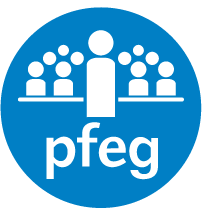Mathematics
The mathematics department’s aim is to develop pupils understanding of mathematical concepts and structures, alongside providing sufficient practice to attain fluency. This combination of developing fluency and mathematical understanding in tandem will enable pupils to use their learning accurately, efficiently and flexibly to reason mathematically and solve routine and non-routine problems, so meeting the aims of the national curriculum (and GCSE specification).
We aim to develop independent learners and this is reflected in our homework and marking policies.
KS3 Mathematics
All years follow the My Maths for Key Stage 3 program which adheres to the National Curriculum. Each year comprises 16 units split over the year. Pupils can access a digital version (Kerboodle) of all units at home relative to the set they are in. Kerboodle also enables pupils to view video clips on topics taught in class.
Mathematics Homework Policy
Purpose Of Homework
- KS3 -to encourage independent learning, where pupils review classwork at home and reflect on their understanding. This will prepare them for their starter questions, fortnightly challenge and assessments.
- KS4 -to encourage independent learning, where pupils review classwork at home and reflect on their understanding. This will prepare them for their starter questions, fortnightly challenge and assessments. This will help develop their independence for their studies towards their GCSEs.
Frequency
- KS3 -Review work after every maths lesson. The time required will depend on the individual pupil.
- KS4 -Review work after every maths lesson. The time required will depend on the individual pupil.
Recording
- Homework is published on Google Classroom at the start of each half term as well as regular verbal reminders from teachers.
Accessibility
- All pupils use their maths book, learning mat and challenges.
- Recommended websites to KS3 - Mymaths and Kerboodle.
- Recommended websites to KS4 - Mathsgenie, Drfrost, Corbettmaths, GCSEPod, Seneca and Onmaths.
- The maths clinic is available on Tuesday lunchtimes.
Feedback and Marking Policy
It is the responsibility of the class teacher to oversee the marking of pupils' work. The majority of marking will be done by pupils during lessons. The department realises the benefits of effective class marking. With pupils marking their own work it enables them to see where and when they made a mistake, so these can be avoided in future.
Pupils are encouraged to put their mathematical strategies/ solutions on the board, with other pupils and the class teacher commenting, correcting or elaborating as necessary. Teachers are checking on pupils' work throughout lessons to monitor understanding and identifying misconceptions.
The department believes a short conversation with a pupil in class - there and then -may be the most effective way to improve understanding. The department also realises the importance of pupils reflecting on their own learning. They are regularly given opportunities during lessons to record this in their exercise books.
Formal tests are held at the end of the Autumn term and at the end of the academic year. These are marked by the class teacher. In general, the department strives to make marking meaningful, manageable and motivating - designed to enhance pupil performance and deepen understanding.
YEAR 7
The curriculum comprises 16 units split over the year as detailed below.
|
Autumn Term |
Spring Term |
Summer Term |
|---|---|---|
|
Whole numbers & decimals |
Whole number calculations |
Sequences |
|
Measures, perimeter & area |
Statistics |
Decimal calculations |
|
Expressions & formulae |
Transformations |
Ratio & proportion |
|
Fractions, decimals & percentages |
Equations |
Probability |
|
Angles & 2D shapes |
Factors & multiples |
Review & preparation for end of year test |
| Graphs | Constructions & 3D shapes |
- Set 1 - Book 1C
- Set 2 - Book 1B
- Set 3 - Book 1A
YEAR 9
The curriculum comprises 16 units split over the year as detailed below.
|
Autumn Term |
Spring Term |
Summer Term |
|
Whole numbers & decimals |
Decimal calculations |
Sequences |
|
Measures, perimeter & area |
Statistics |
3D shapes |
|
Expressions & formulae |
Transformations & scale |
Ratio & proportion |
|
Fractions, decimals & percentages |
Equations |
Probability |
|
Angles |
Powers & roots |
Review & preparation for end of year test |
|
Graphs |
Constructions |
- Set 1 - Book 3C
- Set 2 - Book 3B
- Set 3 - Book 3A
YEAR 8
The curriculum comprises 16 units split over the year as detailed below.
|
Autumn Term |
Spring Term |
Summer Term |
|---|---|---|
|
Whole numbers & decimals |
Mental calculations |
Sequences |
|
Measures, perimeter & area |
Statistics |
Decimal calculations |
|
Expressions & formulae |
Transformations |
Ratio & proportion |
|
Fractions, decimals & percentages |
Equations |
Probability |
|
Angles & 2D shapes |
Written & calculator methods |
Review & preparation for end of yar test |
|
Graphs
|
Constructions |
- Set 1 - Book 1C
- Set 2 - Book 1B
- Set 3 - Book 1A


















